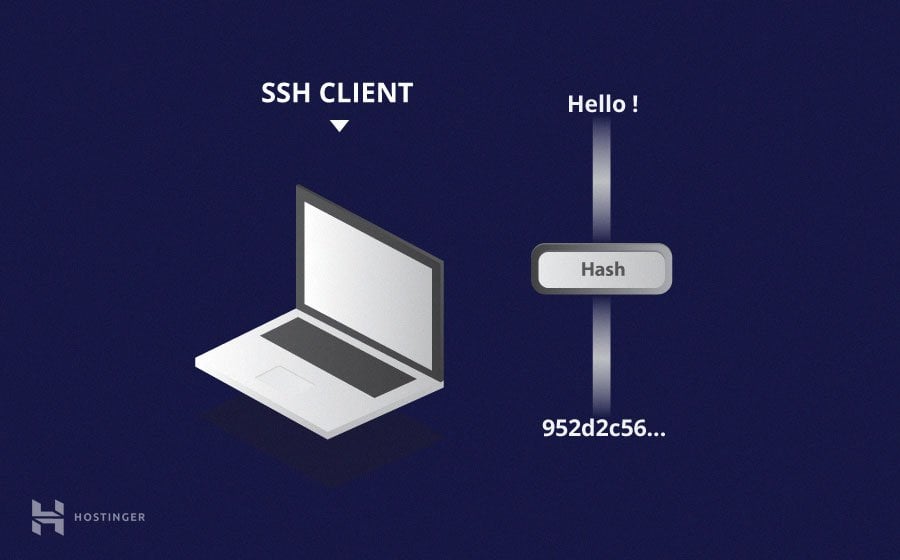Generate Ssh Key From Private Key
- I'm trying to store (append) the public key to a file (/.ssh/authorizedkeys) for a private key (private-key.pem) that actually is stored in s3, all using bash script. Retrieving public key using a.
- Mar 31, 2018 Generate public key and store into a file. It is a simple one liner command to generate a public key from a private key, so lets say our private key is named ‘user@myserver.key’ and we want to generate the public key and name it ‘authorizedkeys’. Below is the command to do this.
- Ssh Create Pub Key From Private Key
- Ubuntu Generate Ssh Public Key From Private Key
- Ssh Keygen Generate Public Key From Private
- Generate Ssh Public Key From Private Key
Nov 10, 2011 Your public and private SSH key should now be generated. Open the file manager and navigate to the.ssh directory. You should see two files: idrsa and idrsa.pub. To change the passphrase, run the following command: $ ssh-keygen –p After you confirm your passphrase, the utility runs and generates your public key and private key within files that match your specified file name. Go to your key folder directory and ensure that both the public and private key files exist. Set the Type of key to generate option to SSH-2 RSA. In the Number of bits in a generated key box, enter 2048. Click Generate to generate a public/private key pair. As the key is being generated, move the mouse around the blank area as directed. My Git setup runs fine on Linux, but when I try to set things up under Windows (using Git for Windows and TortoiseGit), I don't know where to put my private SSH key (or, better still, how to tell ssh.
14 Apr 2020It is kind of a pain to have to enter your username and password every time you push or pull from github.
There is a solution
We will use an ssh public key to authenticate your identity.
In this method of authentication you generate a public key and a private key. The private key stays on your computer (in this case your AWS instance) and the public key is given to 3rd parties who will want to verify your identity (in this case GitHub).
When you attempt to login to GitHub a program called SSH tests to see if your computer has the matching private key.
Generate a ssh key pair
You can either generate a ssh key pair at the command line or in Rstudio. For this class, we will use Rstudio.
- Open Rstudio on your instance.
- Choose
Tools > Global optionsfrom the pull-down menu. - From the options box, click on
Git/Svnon the left hand tab side - Click
Create RSA Key.. - I usually don’t create a passphrase. If you do it makes things a bit more complicated to set up, see below.
- Click
Create - Click
Close - Click
View public key - Press ctrl+c to copy the key to your clipboard.
if you created a passphrase in step 5:
If you created a passphrase for your ssh key in step 6 above, you need to add it to the system.
In a Linux shell/terminal, make sure ssh-agent is running:
Then add your key.
For more info, or instructions on how to do this on Mac or Linux, see section 11.4.3 at Happy Git with R
Add your public key to github
Go to github.com and login to your account
Ssh Create Pub Key From Private Key
Click on the your profile icon near the upper right hand side and then select settings.
Click on SSH and GPG keys on the left hand side
Click on New SSH Key, upper right hand side
Enter a name for your key, paste in your public key, then press add SSH key
Quickbooks 2016 download. Finally, Includes a 60 day.
Test the connection
You may get a warning. Go ahead and type yes. You should then get a message that you have successfully authenticated.
Clone repositories using ssh
In order to use the public key / private key authentication you must clone your repositories using ssh instead of https.

Ubuntu Generate Ssh Public Key From Private Key
Click on “use ssh” as shown below cloning any future repositories.
If you are successful, you should now see “Clone with SSH” How are public key and private key generated.
You can now copy the URL for cloning.
Update repository settings on your computer
Ssh Keygen Generate Public Key From Private
If you have existing repositories that you want to convert to ssh, do the following (NOT necessary for 2020 BIS180L students)
In order to use the public key / private key authentication you must change the URL for your repository so that it uses ssh instead of https.
Generate Ssh Public Key From Private Key
Go to GitHub for your repository, find the URL for cloning. Click above it to change the access method to ssh
If you are successful, you should now see “Clone with SSH”
Copy the URL.
In the Linux terminal cd to the directory for that repository and update the URL
Now you should be all set!
Use the SSH URL method for cloning future repositories